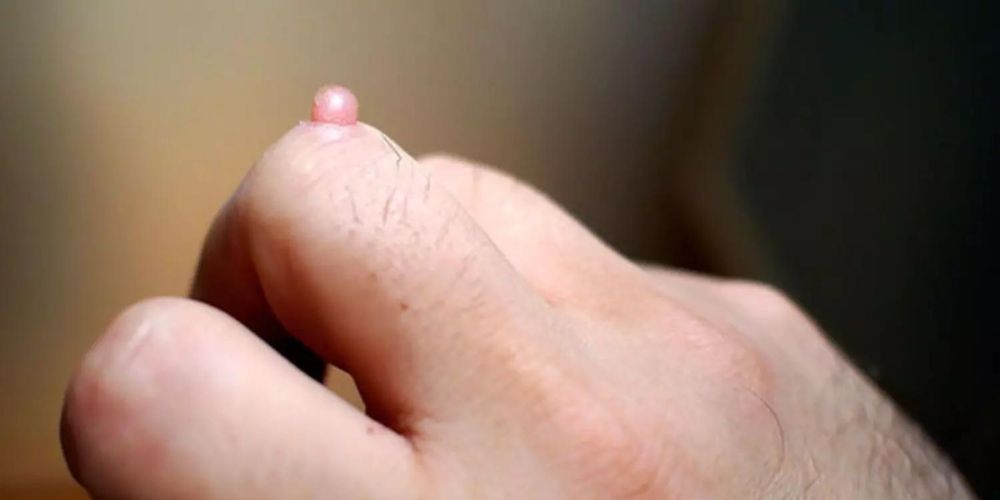Warts
Warts are common skin growths caused by the human papillomavirus (HPV). While they are usually harmless, they can be unsightly and sometimes uncomfortable. Zafeerah Skin Clinic will help you with personalized and tailored treatment plans to manage your warts.
Symptoms of Warts
Warts can appear in different shapes and sizes, depending on the type of HPV virus causing them. Common types of warts include:
- Common Warts: These are rough, raised bumps often found on the hands, fingers, or elbows. They may have a grainy appearance with black dots (clotted blood vessels) on the surface.
- Plantar Warts: These warts develop on the soles of the feet, causing discomfort or pain, especially when walking or standing
- Flat Warts: These are small, flat-topped warts that may appear in clusters on the face, neck, hands, or knees. They can be flesh-coloured, pink, or light brown.
- Genital Warts: These warts appear in the genital area and are typically sexually transmitted. They can be flat or raised and may cause itching, discomfort, or bleeding.
When to See a Doctor ?
It's advisable to consult a dermatologist or visit an acne scars and pigmentation clinic if:
- Warts are painful, bleeding, or causing discomfort.
- Warts are spreading rapidly or appearing in sensitive areas like the face or genital area.
- You have diabetes or a weakened immune system, as warts can pose a higher risk of complications in these cases.
Causes of Warts
Warts are caused by the human papillomavirus (HPV). This virus enters the skin through small cuts or breaks, leading to the fast growth of cells on the outer layer of the skin, resulting in a wart.
Non-Surgical Interventions
Several non-surgical treatments are available for warts, including:
- Topical Treatments:Laser treatment targets and destroys the blood vessels supplying the wart, leading to its removal.
- Cryotherapy: Laser treatment targets and destroys the blood vessels supplying the wart, leading to its removal.
- Electrosurgery: Laser treatment targets and destroys the blood vessels supplying the wart, leading to its removal.
- Laser Therapy: Laser treatment targets and destroys the blood vessels supplying the wart, leading to its removal.
Surgical Interventions
- Excision: The wart is cut out using a surgical knife (scalpel).
- Cauterization: The wart is burned off using a heated instrument.
- Laser Surgery: High-intensity laser beams are used to vaporize the wart tissue.
Risk Factors and Complications
In cases where non-surgical treatments are insufficient, surgical interventions may be considered, including:
- Weakened Immune System: Individuals having weakened immune systems are more susceptible to warts and may experience more severe or persistent cases.
- Skin-to-Skin Contact: Direct contact with a wart or an object contaminated with the HPV virus can lead to new wart growth.
- Age: Children and teenagers are more likely to develop warts than adults.
- Moist Environments: Walking barefoot in public showers or swimming pools can increase the risk of plantar warts.
Complications associated with warts may include secondary infections, especially if the wart is scratched or injured, leading to pain, redness, and pus formation.
Prevention of Warts
- Avoid Skin Contact: Minimize skin-to-skin contact with individuals who have warts, and avoid sharing personal items like towels or razors.
- Keep Skin Dry and Clean: Warts thrive in moist environments, so keeping your skin dry and clean can help prevent their development.
- Wear Foot Protection: Use flip-flops or waterproof shoes in public showers or around swimming pools to reduce the risk of plantar warts.
- Boost Immune System: Maintaining your healthy immune system through balanced nutrition, regular exercise, and enough sleep.
FAQs about Warts
Yes, warts are contagious and can spread through direct skin-to-skin contact or contact with contaminated objects.
While treatments can remove warts, they may recur, especially if the underlying HPV infection is not fully eradicated.
Yes, all warts are caused by various strains of the human papillomavirus (HPV).
Conclusion
Warts are skin growths caused by HPV and can be treated through various non-surgical and surgical interventions. By understanding the symptoms, risk factors, prevention strategies, and available treatments, you can effectively manage and reduce the impact of warts on your skin health.


